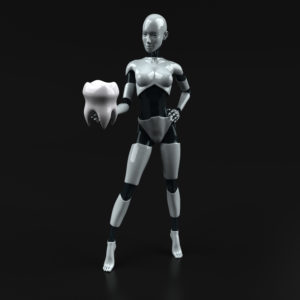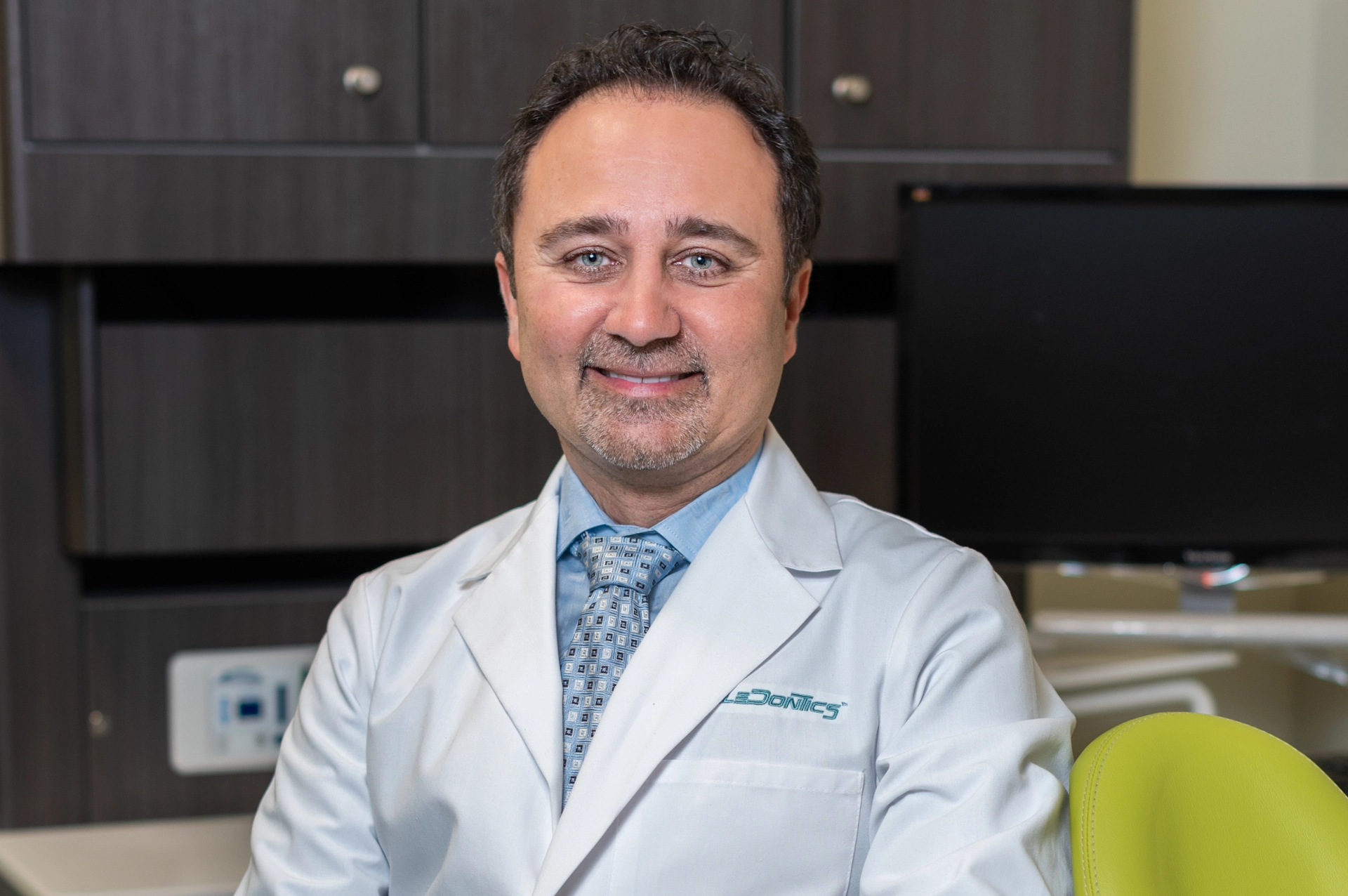
Ever thought to include dentistry and artificial intelligence (also called AI) in the same sentence before? Even if the two seem completely disconnected to you, they actually work together often. In fact, there has recently been a lot of discussion about the potential impacts of artificial intelligence in dentistry. Wondering how dentistry AI could change the field? Read on to find out.
What Is AI and How is It Reshaping the Dental Industry?
So, first things first: what is artificial intelligence exactly? AI is a branch of computer science referring to the abilities of a computer or machine programmed to perform tasks and “think” like a human being. This includes both machine learning and deep learning.
Machine learning is the branch of AI in which computing systems learn how to perform intelligent tasks working from patterns in data, without prior knowledge or specific rules. Deep learning is a branch of AI in which systems attempt to learn the patterns and can then rank patterns in an orderly way that builds on each other.
This AI learning allows technology to do some of the thinking for us. In other words, AI allows a machine to do the work humans have done up until now, freeing employees from certain tasks that take up precious time. So how does this relate to the dental field? Dentistry AI allows a variety of processes to move faster and more efficiently.
For example, in a dental office, AI capable of performing daily administrative tasks could leave the dentist and hygienists with more time to focus on the patient. Where staff may get bogged down by answering phones, completing paperwork, or processing diagnostic results, a computer with AI software could handle all of that. This would allow for quicker access to diagnostic results, shorter waits for patients, and improved workflow for the dental staff.
Which Dental Professions Will AI Impact the Most?
AI has the potential to impact and benefit nearly every dental professional. However, dental surgeons, orthodontists, endodontists, and periodontists stand to benefit the most. Because artificial intelligence has such potential to aid in predicting outcomes and making treatment plans, these fields are able to take advantage of the speed and depth of analysis offered by AI.
Using artificial intelligence in endodontics, for example, can help improve the clinical outcomes of endodontic therapy by helping to determine variations in the root structure of certain teeth. In periodontics, predictive AI has helped with determining the prognosis of teeth compromised by periodontal disease. In orthodontics, AI can help orthodontists determine the necessity of tooth extractions by running through different potential orthodontic outcomes. AI shows how the patient’s teeth might move and how that will affect bone structures.
For dental surgeons, AI can utilize both surgical and clinical data to help suggest the ideal treatment plans and analyze various imaging quickly to offer real-time suggestions. Additionally, with the help of virtual reality and augmented reality in dentistry, dental surgeons can practice new and complex surgeries first before working with patients. They may even eventually use augmented reality to help with image-guided surgery.
Current Examples of AI in Dentistry
Right now, AI is already revolutionizing the dental industry. With the help of artificial intelligence in dentistry, computer algorithms are already able to help identify pathologies and anticipate a patient’s future treatment needs. AI is also helping with automated interpretation of various dental imaging, which helps streamline the accessibility of patient and treatment information. Dentists can then use AI software to create treatment plans and anticipate patient outcomes.
Recent advances in dentistry technology and advances in pediatric dentistry have incorporated AI in order to improve both prevention and treatment for patients.
One such example of AI-assisted dentistry was brought to the forefront during the pandemic. As patients were often unable to come into the office for diagnostic or preventative visits, smartphones allowed patients to get virtual checkups by scanning images of their mouths into an app. That app then identified visible problems with the teeth and gums, which were then communicated to both the patient and the dentist.
From there, providers and patients alike were able to identify the next necessary steps. Not only did this model improve access for many patients who otherwise would have postponed care, but it was also more time and cost-efficient than an initial visit in person.
Another example of AI use in dentistry is decay detection. By pairing AI computer systems with images of patients’ mouths, dentists are able to detect dental decay, as well as anticipate how the decay will progress, allowing dentists to identify problems earlier and treat them more effectively. AI works similarly in the detection of periodontal disease, automating the standard depth for gum probing and providing exact measurements. With the help of artificial intelligence in endodontics, dentists are able to better locate specific tooth structures and detect and diagnose root fractures to determine the severity of the pathology.
Future AI Applications in Dentistry
Dentistry AI has already changed the way dentists are able to access, analyze, and distribute information along with the way predictive pathology and treatment models are made. Yet there’s still so much more potential on the horizon. Artificial intelligence has already allowed various dental professionals in many different specialties to achieve more accurate and detailed diagnostic information. From prevention to diagnosis to treatment, AI will continue to enable less intrusive diagnostic measurements and faster analysis of information, helping dentists diagnose and treat problems more effectively.
Beyond the direct impacts on patient care and outcomes, AI will continue to revolutionize patient access and the patient experience. Whether it’s more advanced virtual patient care or improved patient communication, AI will continue to allow dentists to focus more on patient care and less on the day-to-day administrative duties. This will help improve the interactive experience for both the patient and the dentist overall!
The potential for innovation is exciting, both for the way it could benefit the future of oral health, as well as its possible impacts on the future of patients’ overall health. To learn more about how a healthy mouth can help ensure a healthy body, pre-order If Your Mouth Could Talk.
Sources:
https://www.dentistrytoday.com/how-will-artificial-intelligence-affect-dentists/
https://pubmed.ncbi.nlm.nih.gov/29465283/
https://www.dental-tribune.com/news/how-artificial-intelligence-is-shaping-dentistry-in-2021/
https://www.v7labs.com/blog/ai-in-dentistry
https://www.britannica.com/technology/artificial-intelligence

